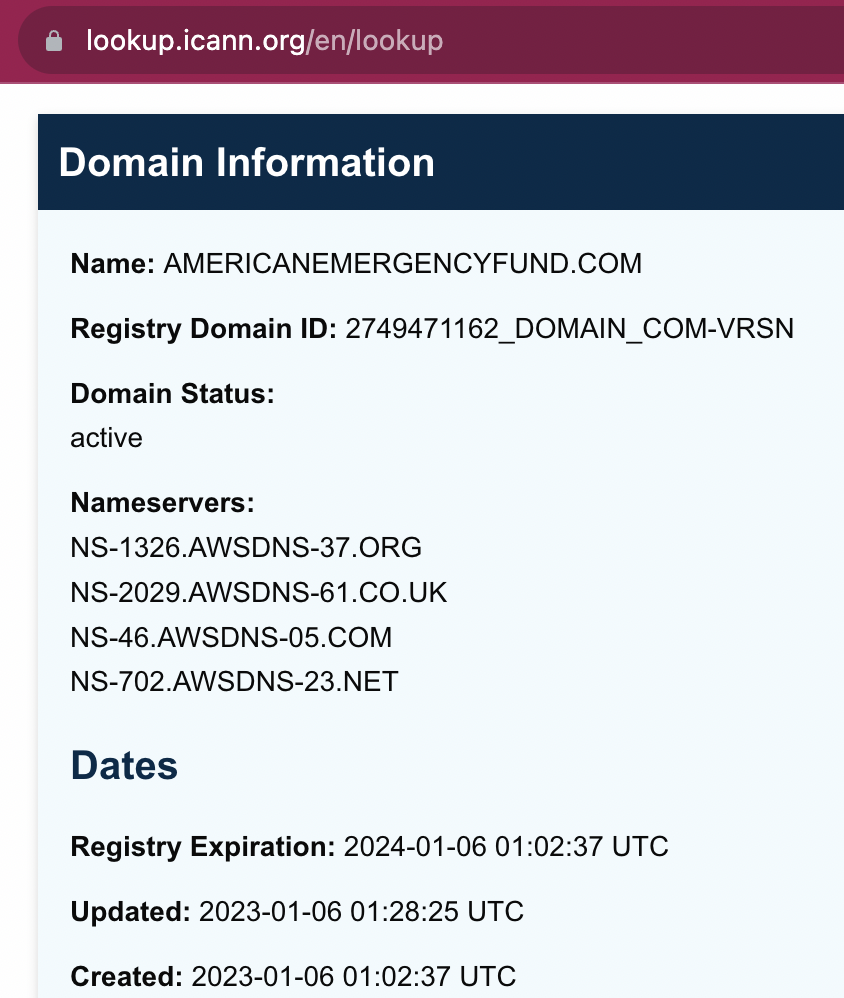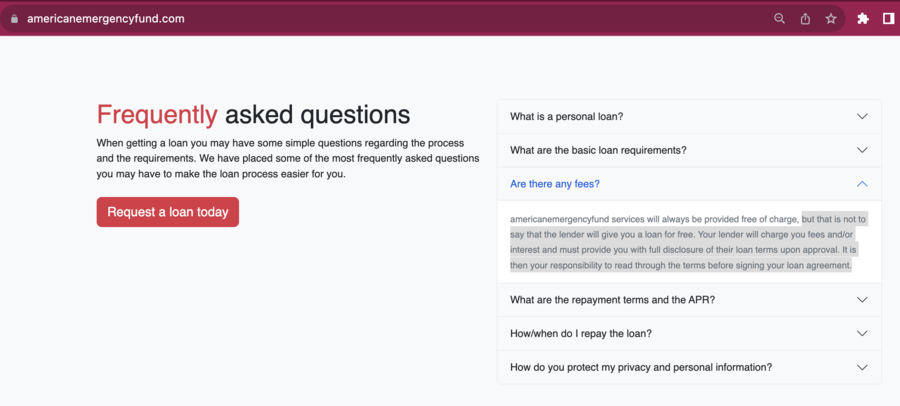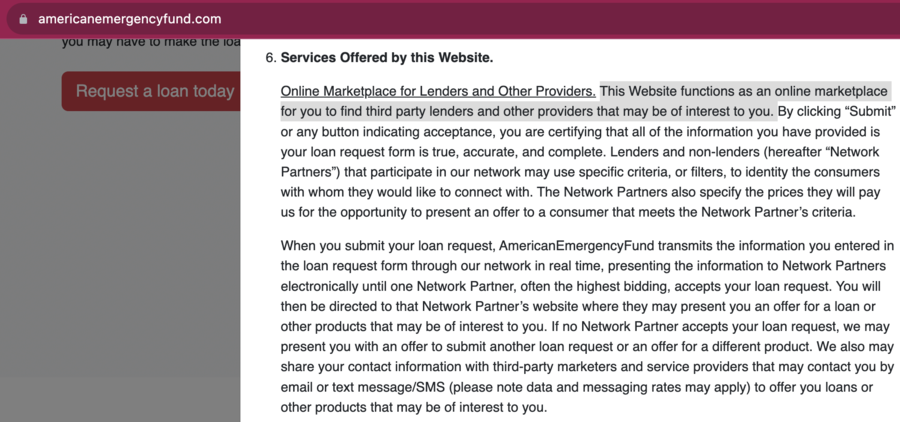
Can "Americans in need" get $5,000 in cash for free through the American Emergency Fund "just in a few minutes"? No, that's not true: The website named in this offer gathers sensitive personal data from applicants for a supposed personal loan and then shares it with a broad range of unidentified entities. This practice may expose people to identity theft.
The claim appeared in a post on Facebook (archived here) on November 21, 2023. The caption said:
Helping Americans in need of assistance. Apply now in just a few minutes.
The post included a video showing a woman in a Merry Christmas sweater inside a car. She said:
Check this out: $5,000 in cash from AmericanEmergencyFund.com. So, this website is for Americans who need money to cover emergency expenses like bills and more. I've used it like three times and it has already came in clutch for the holiday season in order for me to get gifts.
She continued:
So you just fill out this form online, which only took like two minutes. Oh, and it's 100% free. The cool thing is they don't really care about your credit score. Because mine is awful. But I was able to apply and I still got approved for the full $5,000.
This is what the post looked like on Facebook at the time of the writing of this fact check:
(Source: Facebook screenshot taken on Fri Dec 1 15:39:18 2023 UTC)
The name of the purported program, American Emergency Fund, may sound as if it were some sort of major nationwide initiative.
But the URL for this organization's website ends in .com, not .gov (for a government website) or .org (like many nonprofit websites).
Lead Stories found only one result among government websites that mentions an "American Emergency Fund" (archived here). That "American Emergency Fund" was, in fact, the Inter-American Emergency Fund and its name appeared in a PDF file discussing (archived here) the 1970 financial year and government-backed relief programs for people affected by wars in Honduras and El Salvador.
A search for "American Emergency Fund" across Google News (archived here) led to several articles questioning its legitimacy. One of them (archived here), for example, mentioned "a story of an applicant who applied for a loan through the American Emergency Fund website and was offered $1,500 at 777% interest," which is well above the standard range of rates (archived here.)
According to ICANN, which manages the internet's domain names, the AmericanEmergencyFund.com website is set to expire in just over a month, on January 6, 2024. It was registered in January 2023.
(Source: ICANN screenshot taken on Fri Dec 1 19:42:11 2023 UTC)
The video posted on Facebook urges viewers to click a link that leads to a page on the American Emergency Fund website. Contrary to the claim, this site offers personal loans. And its FAQ section spells out that these loans are not free money:
(Source: AmericanEmergencyFund.com screenshot taken on Fri Dec 1 15:55:54 2023 UTC)
A note at the bottom of the page adds:
The website collects personal information provided by you and forwards it to partners in our lender network.
In the Terms of Use section, the website described itself as a marketplace sharing people's information with an unspecified list of entities, described as "Lenders and non-lenders" or "Network Partners:"
(Source: AmericanEmergencyFund.com screenshot taken on Fri Dec 1 16:04:12 2023 UTC)
The site's application for "$5,000 in cash" requests sensitive personal information, such as the applicant's home address, employment, income and the last four digits of the Social Security number -- all without disclosing the specific name of the potential lender or any other institution that will access the applicant's data.
That poses a danger of identity theft.
The website of the Federal Trade Commission (FTC) (archived here) says:
Identity theft is when someone uses your personal or financial information without your permission.
They might steal your name and address, credit card, or bank account numbers, Social Security number, or medical insurance account numbers.
According to the FTC (archived here), 1.1 million people reported identity theft in the U.S. in 2022.
Additional Lead Stories fact checks of promises about financial benefits that proved to be scams can be found here.





















